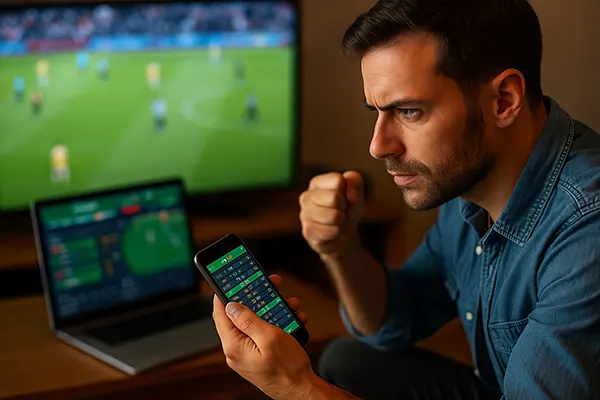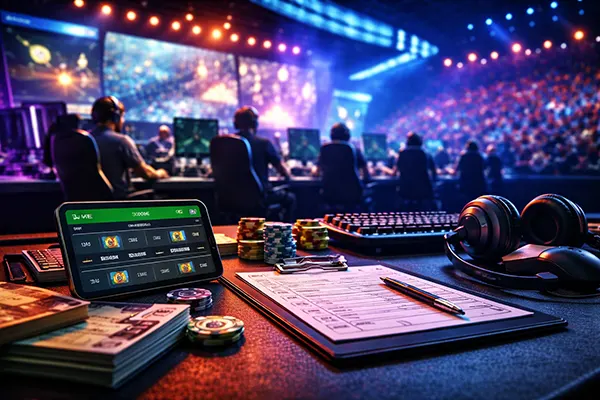The Psychology of Live Betting: How to Make Decisions During the Game

Live betting is one of the most intense and dynamic forms of sports wagering. With odds changing every second and action unfolding in real-time, punters are forced to think quickly and act decisively. However, decision-making in this environment isn’t only about logic and statistics — it’s also about understanding one’s own psychological responses. This article delves into the psychological aspects of live betting and offers strategies to maintain control and clarity when every second counts.
Emotional Triggers and Mental Discipline
Live betting often brings a rush of adrenaline, especially when your favourite team scores or the odds shift dramatically. These emotional triggers can cloud judgment, leading to impulsive decisions rather than rational ones. Recognising the emotional pull of the moment is the first step in regaining control. A calm and calculated bettor will resist the urge to chase fast-moving odds without clear reasoning.
To maintain mental discipline, many experienced punters establish pre-set betting strategies before a match begins. These plans might include bet types, risk limits, or timing decisions. Having a framework helps reduce the impact of live emotions and encourages consistency.
Incorporating short breaks during the game can also reset emotional balance. Step away from the screen for a few minutes — it allows the brain to process the situation without pressure and helps avoid knee-jerk reactions driven by temporary highs or lows.
Understanding the Role of Impulsivity
Impulsivity is a major psychological factor affecting live bettors. The constant stream of available markets — next goal scorer, corner kicks, yellow cards — creates a sense of urgency to act. This “scarcity of time” illusion may trick the mind into thinking that not placing a bet now means missing out.
Successful bettors train themselves to delay action, not rush it. They learn to pause, observe, and evaluate all relevant information, even when time seems limited. Techniques like deep breathing or even counting to ten before confirming a bet can reduce the effect of impulsive behaviour.
Moreover, understanding your own impulsive patterns can lead to better control. For example, if you find yourself consistently betting more after a loss, it’s a sign of emotional chasing — not strategic decision-making.
The Importance of Focus and Information Processing
Live betting demands a sharp focus and the ability to process changing information rapidly. A single lapse in attention can lead to missed opportunities or poorly informed bets. Multitasking — watching the game, reading odds, and scrolling social media — may dilute your ability to concentrate on what truly matters.
One strategy to improve focus is to narrow your attention. Follow only one or two matches at a time and prioritise understanding the in-game dynamics over chasing odds across ten events. Deep knowledge of one match provides more betting value than shallow knowledge of several.
Another useful tactic is to take notes during the game. Writing down significant events, momentum shifts, and market reactions can help create a clearer mental map of what’s happening. It also supports more objective post-match analysis.
Managing Cognitive Load Under Pressure
Cognitive load refers to the amount of mental effort being used at any given moment. In live betting, this load increases with the speed of updates and the complexity of decisions. Bettors who experience cognitive overload may revert to simplistic thinking or instinct, abandoning planned strategies.
To avoid this, simplify your decision-making environment. Use tools such as live stats dashboards or preset betting calculators to offload technical thinking. Limit your betting markets to those you understand deeply — it reduces the mental strain of analysing new variables on the fly.
Additionally, maintain a tidy digital workspace. Close unrelated tabs, silence notifications, and ensure your viewing setup is efficient. A clutter-free screen fosters a focused and mentally lighter experience.

Resilience and Recovery from Mistakes
No bettor can avoid mistakes — but how you react to them defines long-term success. Live betting mistakes can be especially punishing due to the quick pace and real-time financial impact. Developing resilience is key to maintaining consistency and protecting your bankroll.
One powerful psychological tool is reframing. Instead of viewing a loss as failure, view it as feedback. Ask: what led to this decision? Was it data-driven or emotional? What could I do differently next time? This reflection builds resilience and confidence in your betting approach.
Another method is setting strict recovery rules. For example, after a losing streak, pause all activity for a set period (e.g. 30 minutes or until the match ends). This prevents tilt — a state of emotional frustration that leads to reckless behaviour.
Building a Growth-Oriented Betting Mindset
Having a growth-oriented mindset means seeing every bet as part of a larger journey. Whether it wins or loses, it contributes to your learning and skill development. This mental framing reduces stress and creates emotional distance from each individual outcome.
Gamblers with this mindset regularly review their bets, track long-term results, and refine their approach over time. They are not fixated on winning every time — they are focused on improving over months and years.
Finally, combining mental resilience with continuous learning — through watching replays, analysing stats, and studying betting psychology — builds a foundation for long-term success in live betting environments.




